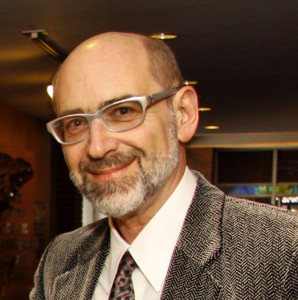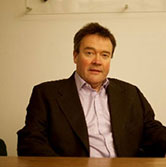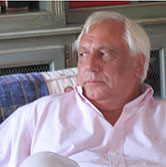Once in a lifetime: a mock negotiation of the sale and purchase of a music publishing company
Posted on: 13 February 2015
By: wyattr1
No Comments »
Filed under: Law and Popular Culture, Uncategorized
An entertainment law ‘dream team’ is to assemble at Westminster Law School on 18 March 2015, to conduct a mock negotiation of the sale and purchase of a music publishing company. All of the participants have worked with each other over many years on transactions totalling billions of dollars, and Westminster Law School is thrilled to be able to host them for this groundbreaking event. The participants are:
Fred Wistow
Fred Wistow is a consultant to and director of several non-profit organizations and a contributing writer to a periodical for therapists. A long time ago, in a galaxy far, far away he was the Executive Vice President and General Counsel of Time Warner’s Music Group.
Fred will be the moderator of the session.
Evan Medow
Evan graduated from UCLA and was admitted to the California and Federal Bars in early 1968. He has represented clients as diverse as Warner Bros. Pictures, Warner Bros. Music Publishing (now Warner Chappell Music Publishing), Colombia Pictures, Geffen Kaye Music Publishing, and Windswept Pacific Entertainment Co, as well as many successful songwriters, producers and record companies. In 1991, he took a position as the CEO of Windswept Pacific Entertainment Co. and subsequently, its successor entity, Windswept Holdings LLC.
Evan has a dual role in the negotiation as seller and M&A counsel.
Chris Ancliff
Chris Ancliff joined Warner Music Group in 2009 as General Counsel, International, WMG. In this position he has responsibility for all of the Group’s legal and business affairs activities outside the US, working closely with WMG’s recorded music and music publishing affiliates throughout Europe, Asia and Latin America. Prior to this, he was Vice President at EMI International, rising to the position of General Counsel, EMI Group, in 2007. During his eleven-year tenure at EMI, Ancliff eventually became responsible for all aspects of the company’s legal and business affairs activities including mergers and acquisitions, artist negotiations, litigation and industry issues.
Chris is acting as the buyer in the negotiation.
John Frankenheimer
John T. Frankenheimer’s practice is centred in the entertainment and media industries, with emphasis on both institutional and talent clients. He also represents writers, producers and directors in both film and television, as well as various technology and media companies. Mr Frankenheimer speaks frequently on topics related to entertainment law and has given presentations at numerous universities as well as numerous industry sponsored events and seminars.
John will be acting as the buyer’s M&A counsel.
Charles Bradbrook
Charles Bradbrook has been advising clients in the media and entertainment sector for over 30 years. He is currently a partner in SRLV, a media specialist accountancy practice, prior to this he was a partner in Deloitte. Charles has advised on a number of transactions involving the purchase, sale and restructuring of a wide range of independent recording and publishing companies. This has made him an expert on the issues that affect the owners of those companies both from a commercial and tax perspective.
Charles will be undertaking financial due diligence and providing tax advice where necessary.
Robert Allan
Robert is an Associate Fellow at Westminster Law School and was a partner in the Commercial Group at Simkins LLP. During the first 20 or so years of practice Robert was a music talent lawyer specialising in the negotiation of recording music publishing and management contracts on behalf of his artist clients as well as the internal legal organisation of the bands that he represented. During those years Robert represented many household names, including America, Mike Oldfield, Dire Straits, Wham, The Average White Band and The Scorpions. More recently, Robert’s clients have included EMI (who he represented on a number of transactions including the acquisition of Chrysalis Records), Filmtrax, Virgin Records and Virgin Music Publishing. Robert also worked in connection with the proposed – but ultimately aborted – merger between EMI and Warner Music Group. He represented EMI in respect of many complex corporate issues following the acquisition of Terra Firma by EMI.
Robert will be undertaking copyright and contractual due diligence.
Robert also undertook the enormous task of organising the event, and without him this would never have happened!
Register online for this event
Meet the Alumnus: Jifree Cader
Posted on: 6 February 2015
By: raymonm
No Comments »
Filed under: Uncategorized
Jifree Cader: studied the LLB at Westminster
Jifree Cader grew up in Streatham, south London and completed his Law LLB at the University of Westminster in 2005. His course included 100 hours of work experience during his second year, which he says gave him a real advantage in the employment market when he applied for vacation schemes and training contracts.
During his training contract, Jifree worked through the credit crunch and subsequent recession and, as a result, legal advice for insolvency and restructuring was in high demand. This is now his specialist area as an Associate at Kirkland and Ellis LLP. Jifree took an active part in the extra-curricular activities on offer at the School of Law, including the client interviewing, negotiation and mooting competitions. These proved invaluable talking points at his training contract interviews and were a good introduction to the tough questions he faces as a lawyer now.

Another year, another bonus season
Posted on: 30 January 2015
By: glinavi
No Comments »
Filed under: Law Research, Uncategorized
All opinions are those of the blog post author and do not represent Westminster Law School or the University of Westminster.
High payments, usually in the form of end-of-year bonuses, have created an unprecedented gulf between the average earnings of employees and the remuneration of top-tier executives. This is true for the financial industry and beyond it. For example, while the Chief Executive Officer (CEO) of General Motors took home roughly 66 times the earnings of his average employee in 1968, the CEO of Wal-Mart earns today 900 times as much (Judt 2010:14). This bonus culture has been identified as a contributing factor to the 2008 financial crisis. It is said to have distorted the incentives of those working in the financial sector by rewarding short-term success without penalising failure. Ominously, it appears to have survived the economic and political turmoil of the intervening years: the bonus culture is still with us (Perry-Kessaris 2012:195).
The colossal mismatch between performance and rewards in the financial services industry is illustrated by the controversy surrounding the 2007 sale by Goldman Sachs to its clients of a product known as Abacus. This collateralised debt obligation (CDO) was allegedly built to fail so that its creator, investment firm Paulson and Co., could collect on a related insurance policy. Goldman is accused of knowing, but not disclosing to its clients, that the product had been designed to be ‘shorted’ in this way and was duly charged with fraud by the US Securities and Exchange Commission (SEC) in 2010. The firm settled for a $300 million fine and $250 million restitution payment to its clients (SEC 16.4.10 and 15.7.10). The following year, Goldman set aside $15.3bn for its January bonus pool, and declared itself to be exercising ‘restraint’ (The Guardian 19.1.2011). This ‘cautious’ attitude apparently persisted. Reuters reported recently (30.12.14) that Goldman toped the London banker pay league based on 2013 data. This research showed that £3.4 billion was paid out to 2,600 top bankers at 13 banks, suggesting bankers earn almost 50 times the average annual pay in Britain.
Policy makers finally decided to take some action in this area. In February 2013 in a meeting of officials from the 27 countries of the EU with MEPs and the European commission, it was agreed to cap bankers’ bonuses broadly at a year’s salary, with the proviso that the bonus could be doubled subject to majority shareholder approval. This of course caused significant consternation to the British delegation which (habitually) was in Brussels aiming to safeguard the interests of the City. This agreement was then approved by the EU finance minister’s meeting on 5 March 2013. Only a few days earlier Swiss voters had overwhelmingly backed proposals to impose some of the world’s strictest controls on executive pay, supporting plans to give shareholders a veto on compensation and ban big pay-outs for new and departing executives (Glinavos 2013:160). The British government had challenged the introduction of such caps in the Capital Requirements Directive (CRD IV) in the ECJ arguing that the EU overstepped its remit by legislating on bankers’ bonuses and imposed the law in a rushed way without any assessment of its impact. The UK dropped its objection however when the Advocate General’s opinion went against it (Case C-507/13).
Do recent policy trends suggest the beginning of the end to extravagant bonuses? The bonus culture is not, contrary to so much commentary on the matter, the unexpected by-product of some new, distinctive version of capitalism. A commitment to a right to wealth -no matter how extreme- is central to capitalism, and it is realised through legal concepts such as private property rights. Bonus schemes therefore are not aberrations, but an inevitable consequence of the philosophical bases of laissez-faire capitalism. If bonuses and their excesses however are part and parcel of a modern economy, should we accept arguments that extraordinary rewards must not be regulated because they are necessary to incentivise bankers to do their jobs? This could be viewed as a jurisprudential question closely linked to the hot debate on inequality, recently re-popularised by the ascension to fame of Thomas Pikkety and his book Capital in the 21st Century. Cohen had argued that in a society that fulfils Rawls’s ‘difference principle’, the poor are only as well off as the selfishness of the rich allows them to be (Cohen 1991:320). Is this vision of society -where the super-rich refuse to improve the lot of the less fortunate unless they receive kickbacks for doing so- one that to which we aspire? Are we always to prefer to conceptualise of social relationships as bargains, rather than as relations of community? Such questions are sure to produce a lively debate as we are entering an election year, both in the UK and elsewhere in Europe (crucially Greece).
An interesting new year is ahead.
Dr. Ioannis Glinavos i.glinavos@westminster.ac.uk
Professor Audrey Macklin on citizenship deprivation

Posted on: 6 January 2015
By: wyattr1
No Comments »
Filed under: Uncategorized
Professor Audrey Macklin (Professor of Law and Chair of Human Rights, University of Toronto) gave a talk on the contemporary issue of citizenship deprivation at Westminster Law School on 27 November 2014. The transcript of the lecture is available to download in PDF format.
Meet the academic: Victoria Brooks

Posted on: 6 January 2015
By: wyattr1
No Comments »
Filed under: Meet the academics, Uncategorized
Please describe yourself and your role in a few sentences?
I am a Lecturer in Law and Doctoral Researcher at the School of Law. I teach a combination of modules (through a variety of different methods) across the LLB and GDL, including Tort, Mooting, Philosophy of Law and Law of the Environment. My teaching and my research are radical and interdisciplinary, theoretical and applied.
What is your area of academic interest?
My PhD in progress is Deleuzian and attempts to examine laws in spaces of sexuality, particularly the coast. My philosophical interests concern the relation between law and immanence, as well as the legalities of the material body and its folds. I am also interested in the space and performance of law, particularly the courtroom, and how bodies and the materiality of the space produce and affect the act of judgment.
Please tell us a bit about the teaching that you are involved in?
I teach both traditional legal disciplines, together with more radical and theoretical approaches to law. I like to make my sessions as interactive and inclusive as possible, as well as playing with the spatial dynamics of the classroom, in addition to integrating visualisation and technology into the classroom as teaching aids. I currently teach Tort law at undergraduate level, as well as the Graduate Diploma in Law, in addition to Law of the Environment on the LLB.
What was your first job?
My first job was as a Legal Secretary in a law firm back in 2001.
Where did you work before coming to Westminster?
Following my first job as a Legal Secretary, I then worked my way up to being a Paralegal in various other law firms before deciding to come to the University of Westminster to study my LLB in 2009. In my final year, I was inspired by my dissertation supervisor (now my PhD supervisor) to undertake a PhD at Westminster.
What has been the highlight of your career to date?
The highlight of my career so far has been a completely electric seminar that I did for Law of the Environment last year, which I delivered on Deleuze and his conceptualisation of immanence and its relation to law. The students were amazing, completely engaged and helped in both ‘drawing’ the concept of immanence and its relation to law, as well as helping to build a virtual ‘word cloud’ of what immanence means to them. It is a highlight because ideas flew between all of us, meaning that all of us were inspired, and we were able to see the concept growing and building throughout the session. I was left buzzing for days afterwards and the pictures we drew are displayed in my office to remind me of this inspirational seminar!
What advice would you give students during their studies and after graduation?
To keep an open mind, to seek inspiration, to wander.
What advice would you give students considering studying this subject?
To take modules that will challenge your way of thinking and to think creatively.
What are your interests/leisure activities?
Reading, walking, long baths and peppermint tea.
Meet the academic: Ioannis Glinavos

Posted on: 6 January 2015
By: wyattr1
No Comments »
Filed under: Meet the academics, Uncategorized
Please describe yourself and your role in a few sentences?
I am Senior Lecturer in Law at Westminster Law School. I am module leader for Company Law and teach on a range of Business and Commercial Law modules. My research is on Law and Economics, focusing particularly on the financial crisis.
What is your area of academic interest?
Law and Economics, Financial Regulation, Investment Arbitration.
Please tell us a bit about the teaching that you are involved in?
Company Law, Commercial Law, Introduction to Business Law.
What was your first job?
Teaching Fellow in Law at SOAS.
Where did you work before coming to Westminster?
University of Reading.
What has been the highlight of your career to date?
The publication of my second monograph in September 2013.
What advice would you give students during their studies and after graduation?
Listen to advice and always do the best you can.
What advice would you give students considering studying this subject?
Think critically about the world around you.
What are your interests/leisure activities?
I spend all my time on Twitter.
Meet the academic: Simon Flacks

Posted on: 6 January 2015
By: wyattr1
No Comments »
Filed under: Meet the academics, Uncategorized
Please describe yourself and your role in a few sentences?
I co-convene Family Law and teach criminal justice. Before entering academia, I worked in the charity sector (undertaking human rights work and mental health advocacy) and in journalism.
What is your area of academic interest?
I have broad research interests that include youth justice, drug policy, human rights, discrimination and gender/sexuality. My PhD addressed under-18 drug treatment.
Please tell us a bit about the teaching that you are involved in?
At the moment, I teach family law, although I will also be teaching on criminal justice modules in the future. Both are really broad subjects, and I enjoy discussing controversial issues that students can get their teeth into!
What was your first job?
My first full time job was as a local newspaper reporter on the Brighton Argus, although I did lots of waiting tables and bar work before that.
Where did you work before coming to Westminster?
The University of Reading.
What has been the highlight of your career to date?
Getting a job in the university sector. I love the work and feel lucky to have found something I really enjoy doing.
What advice would you give students during their studies and after graduation?
Although there is a lot of emphasis on gaining the right skills and grades, try and enjoy the opportunity to learn about interesting subjects too. Choose modules that arouse your curiosity, rather than the ones you suppose might be easiest – I always found I did better in the subjects I liked anyway! In the same vein, try work experience in a variety of organisations so you can find out what you really enjoy doing. University should be about exploration.
What advice would you give students considering studying this subject?
The great thing about law is that there is so much variety. You can stick to legislation and cases if that’s what interests you, but there is also the opportunity to study the law ‘in context’. That might include learning about sociology, philosophy or politics.
What are your interests/leisure activities?
I love travel and the outdoors. I also take an interest in film and popular culture.
FILM MATTERS: six film screenings
Posted on: 17 December 2014
By: wyattr1
No Comments »
Filed under: Law and Popular Culture, Uncategorized
The Regent Street Cinema, the birthplace of British cinema, is due to open to the public in spring 2015 and the Centre for Law, Society and Popular Culture at Westminster Law School is screening a series of films to mark this special occasion.
The Centre has long championed film at the University, creating the first UK module on Film and the Law, setting up the Compton Film Club and organising the exhibition Classified with the British Board of Film Classification in 2012, in addition to publishing research in the area.
FILM MATTERS, will be a series of six films covering a variety of perspectives and areas of interest to the work of the Centre, including intellectual property and censorship. In addition the film Paths of Glory will be screened as part of the Centre’s activities relating to World War One.
We are delighted that screenings of Dear Censor and Pretty Baby will be followed by a discussion with Craig Lapper, Senior Examiner at the British Board of Film classification.
More information and screening times for FILM MATTERS.








